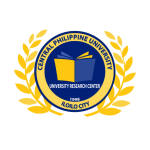Background & Rationale
The University Research Center (URC) of Central Philippine University (CPU) is the official arm of the University to carry out the second function of the University being a Higher Education Institution (HEI) –that is Research. CPU desires an interdependent approach of the three functions of Higher Education Institutions – Instruction, Research and Extension – and to make these programs responsive to the social, cultural, economic, and developmental needs of the country at local, regional and national levels.
As a Christian HEI, the vision of CPU is explicit in its quest for people’s transformation where it envisions achieving “Exemplary Christian Education for Life (EXCEL) and Responsive to the needs of the Total Person and the World.” This vision serves as the basis of the URC in formulating its Research Agenda for the University. In the fulfillment of its vision, the mission statement provides the direction as follows: 1. Carry out a program of spiritual, intellectual, moral, scientific, technological, cultural training and allied studies; 2. These programs shall strengthen Christian faith and build up character; and, 3. Promote scholarship, research and community service.
The establishment of the University Research and Outreach Center (UROC) in 1998 has made a breakthrough and provided an impetus in consolidating the research activities of the different colleges and in coming up with a University Research Guidelines and Research Agenda. The move of the University to separate the Outreach Center from the Research Center in 2002 strengthened the consolidation process.
The University Research Center (URC) was created to develop a research program that will help enhance the competency of faculty and staff members in conducting research and in applying and disseminating information and findings for the benefit of its constituency and the community. The program and services of the URC include the institutional research program, external research program, research education and implementation assistance, research dissemination, and policy formulation and implementation. Capability building programs were regularly conducted and it has successfully increased faculty involvement in research. Research outputs were also regularly disseminated through the internet, brochures on salient findings, newsletter, research journal and symposia. The programs output on rural technology were utilized by the local community. Students and teachers also benefited from the program since research outputs were used as basis for improving laboratory facilities, development of instructional materials, and improvement of university services. The university’s effort to strengthen the research culture towards Exemplary Christian Education for Life (EXCEL) was given recognition by the Commission on Higher Education (CHED) and was awarded the Best Higher Education Institution Research Program in Region VI in 2006.
After taking steps to strengthen the research culture in the university, the URC also facilitated the strengthening of the R&D activities of the different units in the University according to their area of expertise. Other units focused their R&D effort from the laboratory to actual production not only in the Philippines but also in other developing countries. One of the examples is the biomass gasification technology for thermal application. The use of rice husk as fuel plus the integration of steam injection to produce hydrogen-rich clean gas for cooking had greatly impacted the whole world especially this year when the Super Turbo Stove Injection Technology was awarded as one of the recipients of the 2008 World Bank Panibagong Paraan and the Rice Husk Gasifier Stove as the Blue Flame of Hope by the 2008 Rolex Award for Enterprise as Associate Laureate awarded to its Program Leader. Most of the technology on biomass utilization developed in the university can be downloaded at www.bioenergylists.org especially the rice husk gas stove handbook where the complete information of the technology can be downloaded free of charge. To date, various individuals and private companies are producing these technologies at varying scale. The university’s research program on biomass utilization was also awarded by CHED as the Best Higher Education Institution Research Program in Region VI for 2008. Awarded with a Plaque of Recognition as 1st Regional Qualifier for Best Higher Education Institution Research Program (BHEIRP) by the Commission on Higher Education (CHED) last December 2011 for the research entitled; “Development of Indigenous Feeds for Native Chicken”. Also a National Winner in the 2013 CHED REPUBLICA Awards for Agriculture leading a group of 12 qualifiers under the Agriculture and Natural Science Category. The winning paper was entitled, “Production Potentials of Native Chicken (Gallus gallus domesticus L.) of Western Visayas, Philippines authored by Dr. Jaime C. Cabarles, Jr.
